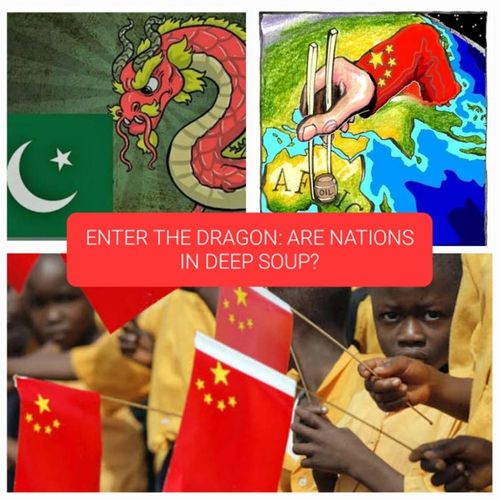ENTER THE DRAGON: ARE CHINESE THE COLONIZERS OF 21ST CENTURY?
Oct 05, 2022 · 2 mins read
0
Share

Introduction: Increased economic dependence of several developing nations on China has been a cause of concern. But is it really something to be worried about or is this just an instance of a symbiotic investment relationship? Let’s dig in!
Save
Share
In recent times, China has emerged as the preferred lender for many low- and middle-income countries across the continents of Asia, Africa, and Latin America.
Save
Share
While China has maintained that its continuous investment and lending in various countries presents tremendous economic development opportunities for both China as well as the investee country, one cannot ignore the increased influence that such transactions confer on China.
Save
Share
In Africa, China is extracting raw materials for its companies such that it ends up being an exporter of cheap finished goods thereby eroding competition from host country. It employs Chinese laborers in its companies in host country and creates a situation of unemployment.
Save
Share
China’s lending mostly focuses on specific infrastructure projects as opposed to general developmental goals. As reported by the Forbes, these loans often have higher interest rates and shorter repayment windows than offered by international lending institutions.
Save
Share
Most Chinese loan agreements confer an unfair advantage to China by containing clauses that restrict borrowers from restructuring debt and accelerate payment of entire loan amount with immediate effect in case of a breach, and classify change in government policy as a breach.
Save
Share
When countries are unable to pay back these loans, they end up losing control over their infrastructure/ resources/ assets. Laos ceded control over a power grid in lieu of debt relief from China, Angola was forced to redirect its oil exports to China to service Chinese debts.
Save
Share
Venezuela too has been a victim of Chinese debt-trap diplomacy. Recently, Sri Lanka ceded control of its Hambantota Port after it ran into financial stress. The latest entrant into this Chinese debt-trap could be Pakistan which owes China around USD 30 billion.
Save
Share
China’s Belt-Road Initiative (BRI) or the “New Silk Road” covers over 60 nations most of which are resource rich with underdeveloped infrastructure. Any default on loan given by China as a part of BRI risks China controlling such defaulter’s integral infrastructure and resources.
Save
Share
China is cleverly exploiting the unfair bargaining power that it has over its debtors. Along with funds, their economic policies also end up being indirectly controlled by China. Given this context, the dependence of the developing world on China is definitely worrisome.
Save
Share
0




